I’ve had many friends from other countries (mainly the US) ask me why is soccer so popular? It’s an interesting question, especially considering that the greatest player of all time currently plays in their local league.
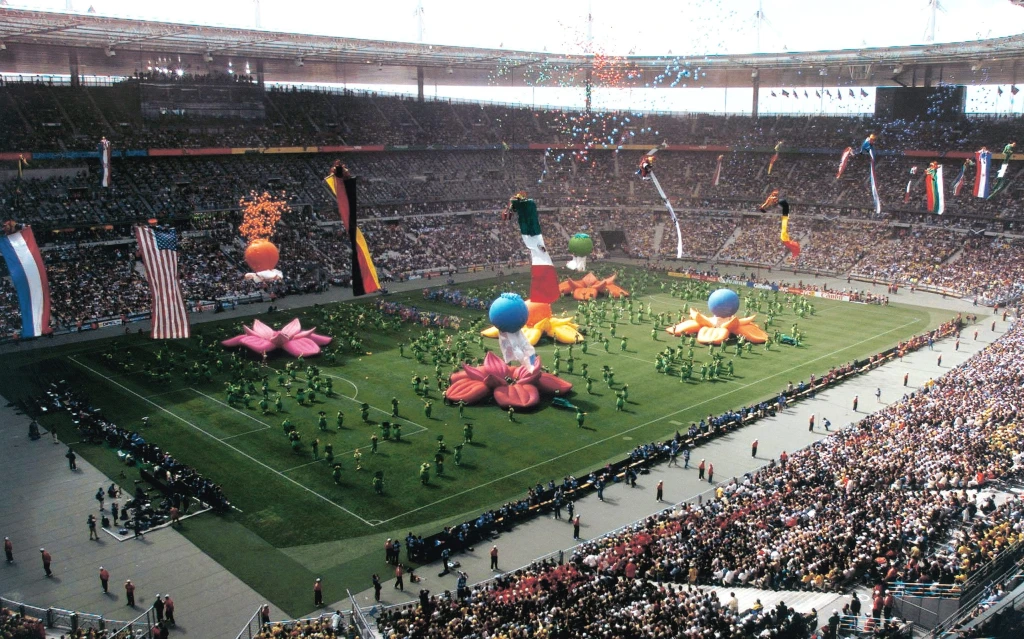
Allow me to explain not only why soccer is so popular worldwide; but also, why you might want to visit your local soccer stadium (if you’re in the US) during the next few years!
- Soccer Has a Super Low Entry Barrier
- Sports with massive audiences all have one thing in common: they’re very accessible in every way.
For those in the States: you’ve probably noticed that soccer is booming, not only because Major League Soccer has leveled up as a brand while also showcasing some very entertaining soccer matches (check out our Betting on MLS Guide here), but also because the World Cup is coming your way!
The Game and Its Rules Are Very Simple
You got two teams, a ball, a goal at each end of an open space, and only the goalkeeper can use their hands. The rest of the players can’t touch the ball with their hands or arms, and if you’re playing with your friends or at school, chances are nobody is going to bother with offside rules.

Kids don’t have to spend countless hours learning complex rules, they can just grab a ball and play with their friends. And, if they want to hone their skills, all they have to do is practice the basics such as dribbling, passing and shooting.
- You don’t even need a lot of equipment to get started either. All you need is a ball. Yes, that’s it.
I mean, technically, you’ll also want to have shoes and some form of goal for each team, but even that’s optional. If you come from a country with a deep-rooted football/soccer culture, you’ll know that kids and adults use whatever is at their disposal to use as a goal. You can have trees, bags, water bottles or just about anything to use as goals and start playing with your friends.
I’d even say that shoes are optional. Just take a look at Brazilians if you don’t believe me. They play with their bare feet at the beaches and have the time of their lives. I’ve tried this myself and moving around the sand with the ball is exhausting, but that’s also why they always seem to be in great shape too!
I’d never play barefoot in the streets, and playing with shoes on a proper grass field is way better. But in some parts of Africa and South America, kids just go and play in the streets and have a great time. Some of their greatest legends started playing soccer like that.
- Point is, it doesn’t matter if you live in a big city, a small village or even if you’re rich or poor. Anyone can play soccer, and this low entry barrier is no doubt a key reason why soccer is so popular around the world.
Soccer is Fast Paced and Easy to Watch

This is another huge reason why soccer is so popular: it’s very viewer friendly. As mentioned before, the rules are simple and this makes the game easy to understand and pick up. But it also has a fantastic rhythm to it, there are few interruptions throughout the game and it’s extremely dynamic. Every game has its own ebb and flow to it, with each team gaining momentum during different parts of the game, but it’s always full of action and obvious displays of skill and strength.
Quick Side Note: If you’re wondering why some people call it Football instead of Soccer (or vice versa), we got all the answers for you as well.
What do I mean with obvious displays of skills and strength? Well, it means that when a player dribbles three defenders and scores a goal, or shoots a masterful freekick, anyone can see that they’ve done something incredible. It’s very cinematic, and unlike some sports, you don’t really need a lot of explanation to understand that you witnessed something special.
Soccer has Influenced Global Culture

No other game has influenced culture in as many countries as soccer has. If you ever visit South America, you’ll find people playing soccer in public fields, streets or parks; but you’ll also find them talking about soccer in bars, and restaurants. It’s everywhere.
Same goes for Europe. England’s football and pub scene is closely intertwined, while Spain, Germany and France have top-tier leagues that consistently give locals something to talk about in plazas and cafes. Even if you don’t speak their dialect, you can always connect with others over soccer. If you’re wondering why is soccer so popular, this would be a top reason.
If you visit a stadium, you’ll notice that everyone shares your passion and understanding for the game. The “ooohs” when a player narrowly misses a goal, the laughs when a player passes the ball between the opponents’ legs, and the cheers when they hit the back of the net are universal expressions. They tap into something very primal, and it seeps into everyday expressions, talks and can even break down language barriers. Soccer really is that big from a cultural standpoint.
The World Cup
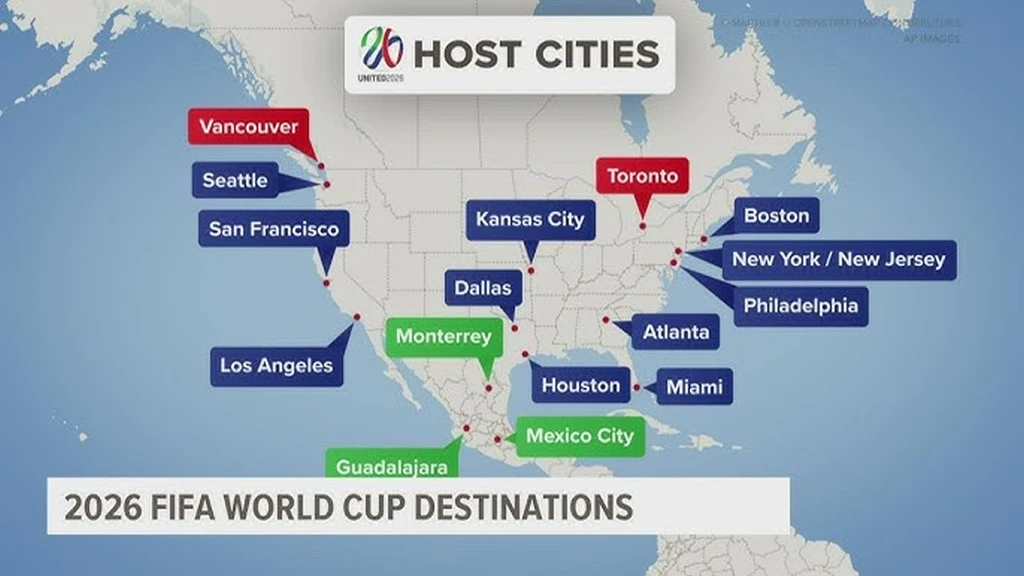
The World Cup is such a massive event that it deserves to be listed as a reason for the sport’s popularity. Every four years, the whole world basically hits the pause button and focuses on the World Cup. Countries from all over the globe send their best teams to compete, and it’s like this massive celebration of soccer. People that don’t follow soccer throughout the years suddenly transform into experts and diehard fans of the game because their country is fighting for the cup, and as a soccer fan, nothing is as simultaneously endearing and cool as that.
The World Cup is the most prestigious tournament in soccer, and it’s the pinnacle from an award and spectacle perspective. People from different backgrounds, cultures, and languages all tune in to watch the same matches and witness thrilling matches, dramatic upsets, and unforgettable moments. It’s an universal experience that answers the question of why soccer is so popular today.
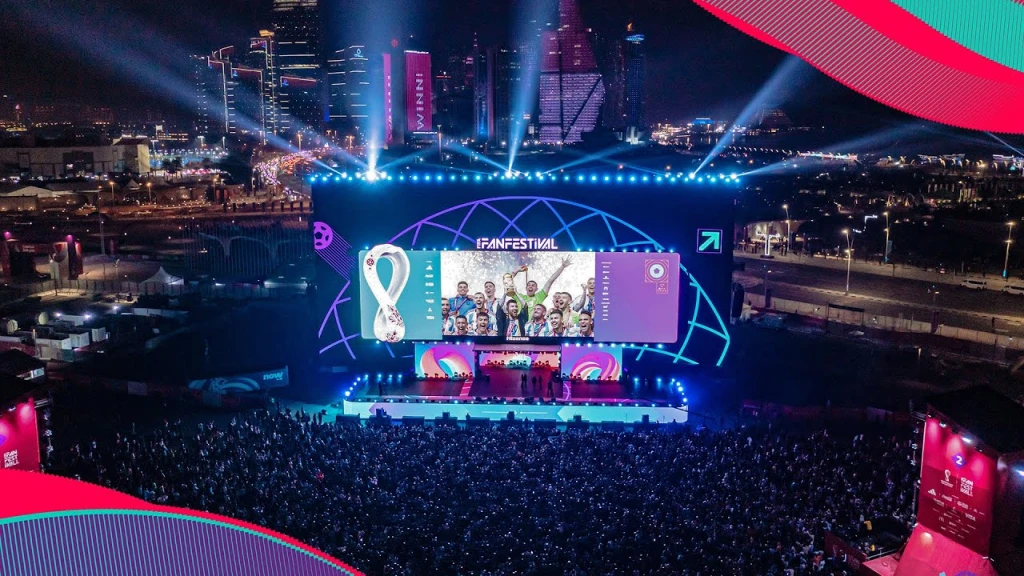
But before that final game, when the tournament is just starting, there’s that unmistakable sense of national pride. When your country is playing, everything stops. Streets are empty, workplaces are quiet, and everyone is glued to the screen. It’s a time when entire nations come together, waving flags, singing anthems, and hoping for victory. Political differences and other divisive topics are no longer relevant, and even people who don’t normally follow soccer get swept up in the excitement. So for those to ask, why is soccer so popular? well, their major tournaments are an opportunity to witness true national unity, and that’s especially true for the World Cup.
The World Cup creates an incredible number of fans that get incredible invested in soccer for that magical month. They might not follow the year-long leagues and tournaments that are always active, but they certainly cheer for their country during the World Cup and get goosebumps when they hear their national anthem.
No other sport does that. Soccer, in that regard, stands above all others.
But let’s also talk about another huge factor behind soccer’s popularity: it’s nonstop action beyond the World Cup
There’s Always a League or Tournament to Follow
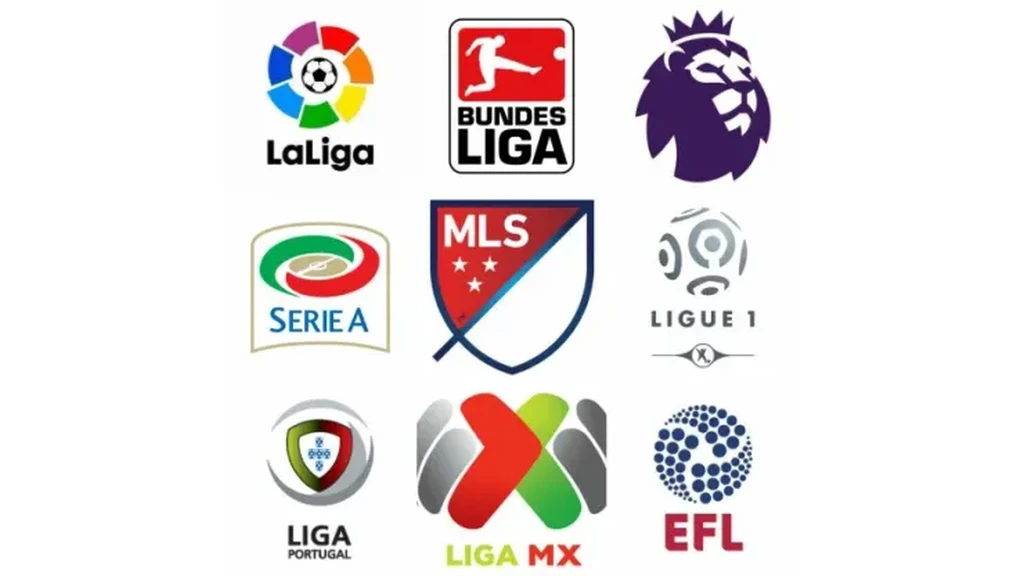
Imagine waking up on a Sunday morning and flipping through the channels or scrolling through your social media feed. Chances are, you’ll come across soccer highlights, news, or live matches. It could be the Premier League, the only tournament that stays active even during December and January when other leagues take a break. Or maybe you’re in for another installment of “El Clasico” between Real Madrid and Barcelona.
There’s always a league or a tournament that is being played somewhere. Just this year, we finished watching Real Madrid add another Champions League trophy to their already large trophy case, and now we’re about to witness a mini-World cup, because the Euro cup and “Copa America” are both being played in their respective continents. This year’s Copa America edition is particularly special because it’s being played on US soil and has many Concacaf participants in it.
The media coverage of soccer is massive and it plays a huge role in making the sport so popular too. First off, there’s TV. Major networks broadcast matches from all over the world, from the English Premier League to La Liga to the World Cup. You can catch live games, pre-match analysis, and post-match discussions almost any day of the week. Some of the most popular shows take place after the actual soccer match, where pundits take the stage to either make you laugh or angry with their takes on soccer. That’s not exclusive to soccer, but it’s definitely one of the reason why soccer so popular today.

The internet is always there: websites blogs, and social media platforms are buzzing with soccer content. You’ve got everything from live streams and highlight reels to in-depth articles and fan forums. Social media, in particular, has taken soccer fandom to a whole new level. You might even interact with one of the players that, hours ago, was on the pitch giving their all.
There’s also Podcasts that cover a particular team’s day to day activities, games and announcements, or shows dedicated to following a national team. People gather to discuss soccer, players and their performance and they’re generally a very entertaining second-monitor type of content you can relax to.
The fact that soccer is always so present both in terms of overall game availability and media coverage is another key reason why soccer is so popular. It’s an almost overwhelming amount of content and entertainment that soccer fans somehow can’t get enough of. It becomes part of regular conversation in workplaces and gatherings, and it answers the question of why is soccer so popular today.
Soccer Players are Modern Day Celebrities

Kids nowadays have grown up looking up to Lionel Messi or Cristiano Ronaldo, just to name some. These two have transcended their status as athletes: they’ve become modern legends with stories, skills and achievements that inspire and resonate with millions around the world. This also ties in with the incredible media coverage and entertainment industry that has spawned alongside soccer, which take the lives and stories of these legends to new lands.
Watching Ronaldo leap and suspend himself in midair as he heads the ball into the net is like witnessing magic. Then, they go on social media and see how Ronaldo posted a 5AM Instagram story at an empty gym, working out to keep his body on top conditions for the next game. This level of dedication and talent inspires the new generations and allow non-soccer fans to at least recognize some of these living legends’ names.
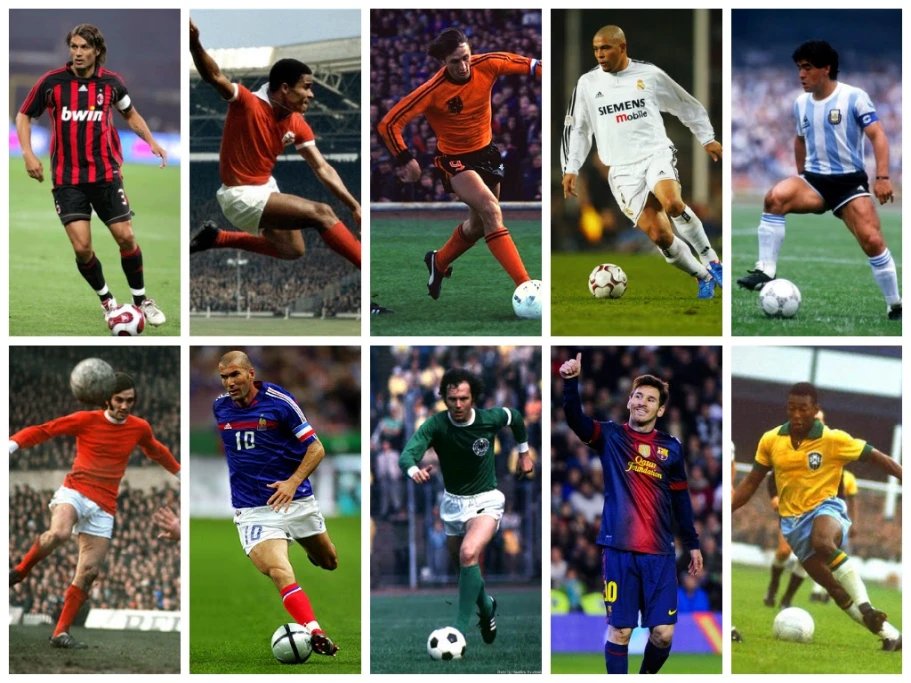
Iconic players like Pelé, Ronaldo, Maradona, and Messi also have fascinating backstories. Many of them came from humble beginnings and worked incredibly hard to reach the top. Their journeys are like modern-day fairy tales, full of challenges, triumphs, and perseverance. They’re effectively heroes, modern day role models that inspire kids everywhere to perfect their dribbling, shooting and passing for hours at a time. They carry their posters and trading cards everywhere they go, and expose their parents and others to their personal stories and tales, as well as soccer in general.
And let’s not forget the charisma and personalities of these players. They’re not just great on the field; they’re also engaging off it. They give interviews, interact with fans on social media, and even get involved in charitable causes. It’s almost like they have an entire team that handles their personal image and trains them, much like mainstream celebrities do.
Mbappe, Haaland and many other up-and-coming players will continue this work, and create more and more soccer fans for years to come. It’s a normal cycle within sports, but few have as many well-known figures as soccer does, and it’s no doubt a factor behind its growing popularity. So, if you’re still wondering: why is soccer so popular? well, the clout around its players and just how relatable many of their lives are plays a major role too.
Soccer Has a Huge Impact on Economy

Soccer is a sport, yes, but it’s also an industry and one that affects economy in a very substantial way. Major leagues and tournaments bring in tons of money from broadcasting rights, sponsorships, and merchandise, but let’s go even deeper.
Picture a small town where the local soccer team is the heartbeat of the community. On game days, the whole place buzzes with excitement. People flock to the stadium, local pubs fill up, and there’s a festive atmosphere in the air. The local team is fighting to get a spot in the country’s first division league, reserved for the top teams in the country, where they also get to fight for a spot in an even greater competition: continental championship tournaments.
The small businesses sell shirts and flags to fans, but they also sell shoes to kids that want to be the next Ronaldo. Local stations and journalist cover the team’s day to day and possible promotion, and it generates money and work to everyone involved.
On a grander scale, events like the World Cup or the Champions League draw massive crowds. We’re talking stadiums packed with thousands of fans, all spending money on tickets, food, drinks, and merchandise. These events bring in tourists from all over the world, filling up hotels, restaurants, and shops. It’s a huge boost for the local economy.
Many question why teams from lesser-known leagues get to send their top team to the Champions League, but ignore just how impactful this is for their local economies. UEFA understands this to perfection and leverages its power in the form of lobbies to further their power and influence.
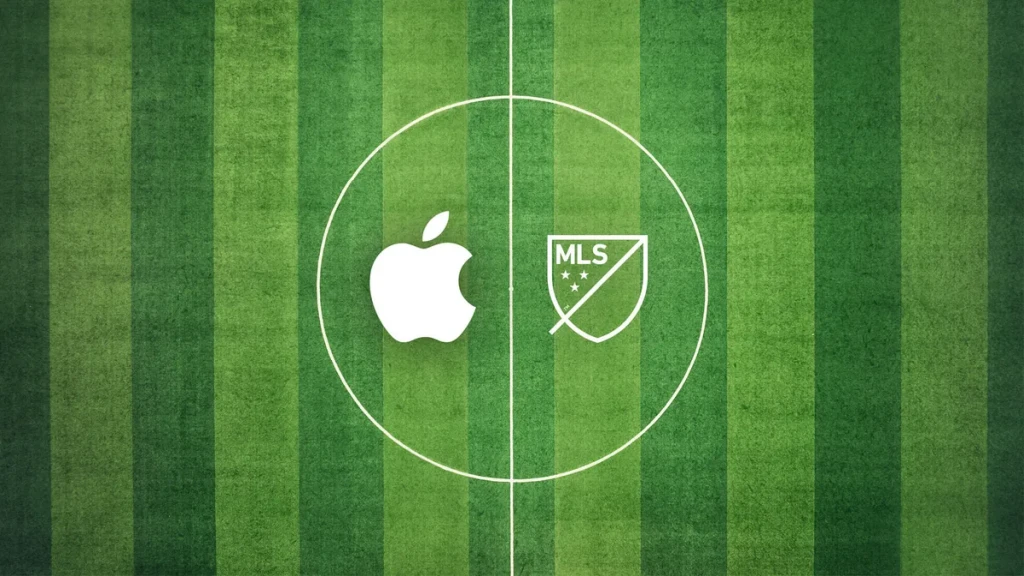
Sponsorship deals are another biggie. Major companies spend millions to have their logos on team jerseys, stadiums, and broadcast ads. These sponsorships pour money into the sport, helping teams fund their operations and invest in facilities and talent. It’s a win-win situation—teams get the financial support they need, and companies get their brand in front of millions of fans. Barcelona could afford to treat Messi’s medical condition because of sponsorship money that they re-invested into their La Masia talent. La Masia also saw many of Spain’s golden generations amongst their rank, continuing this highly profitable business model.
Networks pay big bucks to air soccer matches because they know millions of people will tune in. We’re seeing this right now with the MLS after Messi arrived, new commentators, directors and producers that have flocked to the US to enrich the league’s production and marketing value. All of this generates money for the clubs and jumpstarts the economy. This certainly answers the question of why is soccer so popular today: it moves tremendous amounts of money!
Soccer is massive from an economic standpoint. It drives tourism, boosts local businesses, creates jobs, and attracts significant investment through sponsorships and broadcasting rights. Because let’s face it: as entertaining as soccer is, if it didn’t generate as much money as it did, it wouldn’t be popular at all. Many invest and promote soccer because of the money it can create, not out of love for the sport.
FAQs on Why is Soccer So Popular
Why is soccer called the beautiful game?
Soccer is often called the beautiful game because of its simplicity and the way it brings people together. The fluidity and skill involved also make it a joy to watch and play.
How did soccer become the most popular sport in the world?
Soccer’s simplicity, accessibility, and global appeal have helped it become the most popular sport. It doesn’t require expensive equipment, and anyone can play it, anywhere.
What are the benefits of playing soccer?
Soccer offers numerous benefits, including physical fitness, social interaction, and mental well-being. It’s a fun way to stay active and make friends.
How has technology impacted soccer?
Technology has improved the fairness and excitement of soccer. VAR, goal-line technology, and advanced broadcasting have enhanced the viewing and playing experience.
Why is the World Cup so significant?
The World Cup is the pinnacle of soccer, bringing together the best teams from around the world. It’s a massive event that unites fans and showcases the sport’s global reach.
I’ve had many friends from other countries (mainly the US) ask me why is soccer so popular? It’s an interesting question, especially considering that the greatest player of all time currently plays in their local league.

Allow me to explain not only why soccer is so popular worldwide; but also, why you might want to visit your local soccer stadium (if you’re in the US) during the next few years!
- Soccer Has a Super Low Entry Barrier
- Sports with massive audiences all have one thing in common: they’re very accessible in every way.
For those in the States: you’ve probably noticed that soccer is booming, not only because Major League Soccer has leveled up as a brand while also showcasing some very entertaining soccer matches (check out our Betting on MLS Guide here), but also because the World Cup is coming your way!
The Game and Its Rules Are Very Simple
You got two teams, a ball, a goal at each end of an open space, and only the goalkeeper can use their hands. The rest of the players can’t touch the ball with their hands or arms, and if you’re playing with your friends or at school, chances are nobody is going to bother with offside rules.

Kids don’t have to spend countless hours learning complex rules, they can just grab a ball and play with their friends. And, if they want to hone their skills, all they have to do is practice the basics such as dribbling, passing and shooting.
- You don’t even need a lot of equipment to get started either. All you need is a ball. Yes, that’s it.
I mean, technically, you’ll also want to have shoes and some form of goal for each team, but even that’s optional. If you come from a country with a deep-rooted football/soccer culture, you’ll know that kids and adults use whatever is at their disposal to use as a goal. You can have trees, bags, water bottles or just about anything to use as goals and start playing with your friends.
I’d even say that shoes are optional. Just take a look at Brazilians if you don’t believe me. They play with their bare feet at the beaches and have the time of their lives. I’ve tried this myself and moving around the sand with the ball is exhausting, but that’s also why they always seem to be in great shape too!
I’d never play barefoot in the streets, and playing with shoes on a proper grass field is way better. But in some parts of Africa and South America, kids just go and play in the streets and have a great time. Some of their greatest legends started playing soccer like that.
- Point is, it doesn’t matter if you live in a big city, a small village or even if you’re rich or poor. Anyone can play soccer, and this low entry barrier is no doubt a key reason why soccer is so popular around the world.
Soccer is Fast Paced and Easy to Watch

This is another huge reason why soccer is so popular: it’s very viewer friendly. As mentioned before, the rules are simple and this makes the game easy to understand and pick up. But it also has a fantastic rhythm to it, there are few interruptions throughout the game and it’s extremely dynamic. Every game has its own ebb and flow to it, with each team gaining momentum during different parts of the game, but it’s always full of action and obvious displays of skill and strength.
Quick Side Note: If you’re wondering why some people call it Football instead of Soccer (or vice versa), we got all the answers for you as well.
What do I mean with obvious displays of skills and strength? Well, it means that when a player dribbles three defenders and scores a goal, or shoots a masterful freekick, anyone can see that they’ve done something incredible. It’s very cinematic, and unlike some sports, you don’t really need a lot of explanation to understand that you witnessed something special.
Soccer has Influenced Global Culture

No other game has influenced culture in as many countries as soccer has. If you ever visit South America, you’ll find people playing soccer in public fields, streets or parks; but you’ll also find them talking about soccer in bars, and restaurants. It’s everywhere.
Same goes for Europe. England’s football and pub scene is closely intertwined, while Spain, Germany and France have top-tier leagues that consistently give locals something to talk about in plazas and cafes. Even if you don’t speak their dialect, you can always connect with others over soccer. If you’re wondering why is soccer so popular, this would be a top reason.
If you visit a stadium, you’ll notice that everyone shares your passion and understanding for the game. The “ooohs” when a player narrowly misses a goal, the laughs when a player passes the ball between the opponents’ legs, and the cheers when they hit the back of the net are universal expressions. They tap into something very primal, and it seeps into everyday expressions, talks and can even break down language barriers. Soccer really is that big from a cultural standpoint.
The World Cup

The World Cup is such a massive event that it deserves to be listed as a reason for the sport’s popularity. Every four years, the whole world basically hits the pause button and focuses on the World Cup. Countries from all over the globe send their best teams to compete, and it’s like this massive celebration of soccer. People that don’t follow soccer throughout the years suddenly transform into experts and diehard fans of the game because their country is fighting for the cup, and as a soccer fan, nothing is as simultaneously endearing and cool as that.
The World Cup is the most prestigious tournament in soccer, and it’s the pinnacle from an award and spectacle perspective. People from different backgrounds, cultures, and languages all tune in to watch the same matches and witness thrilling matches, dramatic upsets, and unforgettable moments. It’s an universal experience that answers the question of why soccer is so popular today.

But before that final game, when the tournament is just starting, there’s that unmistakable sense of national pride. When your country is playing, everything stops. Streets are empty, workplaces are quiet, and everyone is glued to the screen. It’s a time when entire nations come together, waving flags, singing anthems, and hoping for victory. Political differences and other divisive topics are no longer relevant, and even people who don’t normally follow soccer get swept up in the excitement. So for those to ask, why is soccer so popular? well, their major tournaments are an opportunity to witness true national unity, and that’s especially true for the World Cup.
The World Cup creates an incredible number of fans that get incredible invested in soccer for that magical month. They might not follow the year-long leagues and tournaments that are always active, but they certainly cheer for their country during the World Cup and get goosebumps when they hear their national anthem.
No other sport does that. Soccer, in that regard, stands above all others.
But let’s also talk about another huge factor behind soccer’s popularity: it’s nonstop action beyond the World Cup
There’s Always a League or Tournament to Follow

Imagine waking up on a Sunday morning and flipping through the channels or scrolling through your social media feed. Chances are, you’ll come across soccer highlights, news, or live matches. It could be the Premier League, the only tournament that stays active even during December and January when other leagues take a break. Or maybe you’re in for another installment of “El Clasico” between Real Madrid and Barcelona.
There’s always a league or a tournament that is being played somewhere. Just this year, we finished watching Real Madrid add another Champions League trophy to their already large trophy case, and now we’re about to witness a mini-World cup, because the Euro cup and “Copa America” are both being played in their respective continents. This year’s Copa America edition is particularly special because it’s being played on US soil and has many Concacaf participants in it.
The media coverage of soccer is massive and it plays a huge role in making the sport so popular too. First off, there’s TV. Major networks broadcast matches from all over the world, from the English Premier League to La Liga to the World Cup. You can catch live games, pre-match analysis, and post-match discussions almost any day of the week. Some of the most popular shows take place after the actual soccer match, where pundits take the stage to either make you laugh or angry with their takes on soccer. That’s not exclusive to soccer, but it’s definitely one of the reason why soccer so popular today.

The internet is always there: websites blogs, and social media platforms are buzzing with soccer content. You’ve got everything from live streams and highlight reels to in-depth articles and fan forums. Social media, in particular, has taken soccer fandom to a whole new level. You might even interact with one of the players that, hours ago, was on the pitch giving their all.
There’s also Podcasts that cover a particular team’s day to day activities, games and announcements, or shows dedicated to following a national team. People gather to discuss soccer, players and their performance and they’re generally a very entertaining second-monitor type of content you can relax to.
The fact that soccer is always so present both in terms of overall game availability and media coverage is another key reason why soccer is so popular. It’s an almost overwhelming amount of content and entertainment that soccer fans somehow can’t get enough of. It becomes part of regular conversation in workplaces and gatherings, and it answers the question of why is soccer so popular today.
Soccer Players are Modern Day Celebrities

Kids nowadays have grown up looking up to Lionel Messi or Cristiano Ronaldo, just to name some. These two have transcended their status as athletes: they’ve become modern legends with stories, skills and achievements that inspire and resonate with millions around the world. This also ties in with the incredible media coverage and entertainment industry that has spawned alongside soccer, which take the lives and stories of these legends to new lands.
Watching Ronaldo leap and suspend himself in midair as he heads the ball into the net is like witnessing magic. Then, they go on social media and see how Ronaldo posted a 5AM Instagram story at an empty gym, working out to keep his body on top conditions for the next game. This level of dedication and talent inspires the new generations and allow non-soccer fans to at least recognize some of these living legends’ names.

Iconic players like Pelé, Ronaldo, Maradona, and Messi also have fascinating backstories. Many of them came from humble beginnings and worked incredibly hard to reach the top. Their journeys are like modern-day fairy tales, full of challenges, triumphs, and perseverance. They’re effectively heroes, modern day role models that inspire kids everywhere to perfect their dribbling, shooting and passing for hours at a time. They carry their posters and trading cards everywhere they go, and expose their parents and others to their personal stories and tales, as well as soccer in general.
And let’s not forget the charisma and personalities of these players. They’re not just great on the field; they’re also engaging off it. They give interviews, interact with fans on social media, and even get involved in charitable causes. It’s almost like they have an entire team that handles their personal image and trains them, much like mainstream celebrities do.
Mbappe, Haaland and many other up-and-coming players will continue this work, and create more and more soccer fans for years to come. It’s a normal cycle within sports, but few have as many well-known figures as soccer does, and it’s no doubt a factor behind its growing popularity. So, if you’re still wondering: why is soccer so popular? well, the clout around its players and just how relatable many of their lives are plays a major role too.
Soccer Has a Huge Impact on Economy

Soccer is a sport, yes, but it’s also an industry and one that affects economy in a very substantial way. Major leagues and tournaments bring in tons of money from broadcasting rights, sponsorships, and merchandise, but let’s go even deeper.
Picture a small town where the local soccer team is the heartbeat of the community. On game days, the whole place buzzes with excitement. People flock to the stadium, local pubs fill up, and there’s a festive atmosphere in the air. The local team is fighting to get a spot in the country’s first division league, reserved for the top teams in the country, where they also get to fight for a spot in an even greater competition: continental championship tournaments.
The small businesses sell shirts and flags to fans, but they also sell shoes to kids that want to be the next Ronaldo. Local stations and journalist cover the team’s day to day and possible promotion, and it generates money and work to everyone involved.
On a grander scale, events like the World Cup or the Champions League draw massive crowds. We’re talking stadiums packed with thousands of fans, all spending money on tickets, food, drinks, and merchandise. These events bring in tourists from all over the world, filling up hotels, restaurants, and shops. It’s a huge boost for the local economy.
Many question why teams from lesser-known leagues get to send their top team to the Champions League, but ignore just how impactful this is for their local economies. UEFA understands this to perfection and leverages its power in the form of lobbies to further their power and influence.

Sponsorship deals are another biggie. Major companies spend millions to have their logos on team jerseys, stadiums, and broadcast ads. These sponsorships pour money into the sport, helping teams fund their operations and invest in facilities and talent. It’s a win-win situation—teams get the financial support they need, and companies get their brand in front of millions of fans. Barcelona could afford to treat Messi’s medical condition because of sponsorship money that they re-invested into their La Masia talent. La Masia also saw many of Spain’s golden generations amongst their rank, continuing this highly profitable business model.
Networks pay big bucks to air soccer matches because they know millions of people will tune in. We’re seeing this right now with the MLS after Messi arrived, new commentators, directors and producers that have flocked to the US to enrich the league’s production and marketing value. All of this generates money for the clubs and jumpstarts the economy. This certainly answers the question of why is soccer so popular today: it moves tremendous amounts of money!
Soccer is massive from an economic standpoint. It drives tourism, boosts local businesses, creates jobs, and attracts significant investment through sponsorships and broadcasting rights. Because let’s face it: as entertaining as soccer is, if it didn’t generate as much money as it did, it wouldn’t be popular at all. Many invest and promote soccer because of the money it can create, not out of love for the sport.
FAQs on Why is Soccer So Popular
Why is soccer called the beautiful game?
Soccer is often called the beautiful game because of its simplicity and the way it brings people together. The fluidity and skill involved also make it a joy to watch and play.
How did soccer become the most popular sport in the world?
Soccer’s simplicity, accessibility, and global appeal have helped it become the most popular sport. It doesn’t require expensive equipment, and anyone can play it, anywhere.
What are the benefits of playing soccer?
Soccer offers numerous benefits, including physical fitness, social interaction, and mental well-being. It’s a fun way to stay active and make friends.
How has technology impacted soccer?
Technology has improved the fairness and excitement of soccer. VAR, goal-line technology, and advanced broadcasting have enhanced the viewing and playing experience.
Why is the World Cup so significant?
The World Cup is the pinnacle of soccer, bringing together the best teams from around the world. It’s a massive event that unites fans and showcases the sport’s global reach.
I’ve had many friends from other countries (mainly the US) ask me why is soccer so popular? It’s an interesting question, especially considering that the greatest player of all time currently plays in their local league.

Allow me to explain not only why soccer is so popular worldwide; but also, why you might want to visit your local soccer stadium (if you’re in the US) during the next few years!
- Soccer Has a Super Low Entry Barrier
- Sports with massive audiences all have one thing in common: they’re very accessible in every way.
For those in the States: you’ve probably noticed that soccer is booming, not only because Major League Soccer has leveled up as a brand while also showcasing some very entertaining soccer matches (check out our Betting on MLS Guide here), but also because the World Cup is coming your way!
The Game and Its Rules Are Very Simple
You got two teams, a ball, a goal at each end of an open space, and only the goalkeeper can use their hands. The rest of the players can’t touch the ball with their hands or arms, and if you’re playing with your friends or at school, chances are nobody is going to bother with offside rules.

Kids don’t have to spend countless hours learning complex rules, they can just grab a ball and play with their friends. And, if they want to hone their skills, all they have to do is practice the basics such as dribbling, passing and shooting.
- You don’t even need a lot of equipment to get started either. All you need is a ball. Yes, that’s it.
I mean, technically, you’ll also want to have shoes and some form of goal for each team, but even that’s optional. If you come from a country with a deep-rooted football/soccer culture, you’ll know that kids and adults use whatever is at their disposal to use as a goal. You can have trees, bags, water bottles or just about anything to use as goals and start playing with your friends.
I’d even say that shoes are optional. Just take a look at Brazilians if you don’t believe me. They play with their bare feet at the beaches and have the time of their lives. I’ve tried this myself and moving around the sand with the ball is exhausting, but that’s also why they always seem to be in great shape too!
I’d never play barefoot in the streets, and playing with shoes on a proper grass field is way better. But in some parts of Africa and South America, kids just go and play in the streets and have a great time. Some of their greatest legends started playing soccer like that.
- Point is, it doesn’t matter if you live in a big city, a small village or even if you’re rich or poor. Anyone can play soccer, and this low entry barrier is no doubt a key reason why soccer is so popular around the world.
Soccer is Fast Paced and Easy to Watch

This is another huge reason why soccer is so popular: it’s very viewer friendly. As mentioned before, the rules are simple and this makes the game easy to understand and pick up. But it also has a fantastic rhythm to it, there are few interruptions throughout the game and it’s extremely dynamic. Every game has its own ebb and flow to it, with each team gaining momentum during different parts of the game, but it’s always full of action and obvious displays of skill and strength.
Quick Side Note: If you’re wondering why some people call it Football instead of Soccer (or vice versa), we got all the answers for you as well.
What do I mean with obvious displays of skills and strength? Well, it means that when a player dribbles three defenders and scores a goal, or shoots a masterful freekick, anyone can see that they’ve done something incredible. It’s very cinematic, and unlike some sports, you don’t really need a lot of explanation to understand that you witnessed something special.
Soccer has Influenced Global Culture

No other game has influenced culture in as many countries as soccer has. If you ever visit South America, you’ll find people playing soccer in public fields, streets or parks; but you’ll also find them talking about soccer in bars, and restaurants. It’s everywhere.
Same goes for Europe. England’s football and pub scene is closely intertwined, while Spain, Germany and France have top-tier leagues that consistently give locals something to talk about in plazas and cafes. Even if you don’t speak their dialect, you can always connect with others over soccer. If you’re wondering why is soccer so popular, this would be a top reason.
If you visit a stadium, you’ll notice that everyone shares your passion and understanding for the game. The “ooohs” when a player narrowly misses a goal, the laughs when a player passes the ball between the opponents’ legs, and the cheers when they hit the back of the net are universal expressions. They tap into something very primal, and it seeps into everyday expressions, talks and can even break down language barriers. Soccer really is that big from a cultural standpoint.
The World Cup

The World Cup is such a massive event that it deserves to be listed as a reason for the sport’s popularity. Every four years, the whole world basically hits the pause button and focuses on the World Cup. Countries from all over the globe send their best teams to compete, and it’s like this massive celebration of soccer. People that don’t follow soccer throughout the years suddenly transform into experts and diehard fans of the game because their country is fighting for the cup, and as a soccer fan, nothing is as simultaneously endearing and cool as that.
The World Cup is the most prestigious tournament in soccer, and it’s the pinnacle from an award and spectacle perspective. People from different backgrounds, cultures, and languages all tune in to watch the same matches and witness thrilling matches, dramatic upsets, and unforgettable moments. It’s an universal experience that answers the question of why soccer is so popular today.

But before that final game, when the tournament is just starting, there’s that unmistakable sense of national pride. When your country is playing, everything stops. Streets are empty, workplaces are quiet, and everyone is glued to the screen. It’s a time when entire nations come together, waving flags, singing anthems, and hoping for victory. Political differences and other divisive topics are no longer relevant, and even people who don’t normally follow soccer get swept up in the excitement. So for those to ask, why is soccer so popular? well, their major tournaments are an opportunity to witness true national unity, and that’s especially true for the World Cup.
The World Cup creates an incredible number of fans that get incredible invested in soccer for that magical month. They might not follow the year-long leagues and tournaments that are always active, but they certainly cheer for their country during the World Cup and get goosebumps when they hear their national anthem.
No other sport does that. Soccer, in that regard, stands above all others.
But let’s also talk about another huge factor behind soccer’s popularity: it’s nonstop action beyond the World Cup
There’s Always a League or Tournament to Follow

Imagine waking up on a Sunday morning and flipping through the channels or scrolling through your social media feed. Chances are, you’ll come across soccer highlights, news, or live matches. It could be the Premier League, the only tournament that stays active even during December and January when other leagues take a break. Or maybe you’re in for another installment of “El Clasico” between Real Madrid and Barcelona.
There’s always a league or a tournament that is being played somewhere. Just this year, we finished watching Real Madrid add another Champions League trophy to their already large trophy case, and now we’re about to witness a mini-World cup, because the Euro cup and “Copa America” are both being played in their respective continents. This year’s Copa America edition is particularly special because it’s being played on US soil and has many Concacaf participants in it.
The media coverage of soccer is massive and it plays a huge role in making the sport so popular too. First off, there’s TV. Major networks broadcast matches from all over the world, from the English Premier League to La Liga to the World Cup. You can catch live games, pre-match analysis, and post-match discussions almost any day of the week. Some of the most popular shows take place after the actual soccer match, where pundits take the stage to either make you laugh or angry with their takes on soccer. That’s not exclusive to soccer, but it’s definitely one of the reason why soccer so popular today.

The internet is always there: websites blogs, and social media platforms are buzzing with soccer content. You’ve got everything from live streams and highlight reels to in-depth articles and fan forums. Social media, in particular, has taken soccer fandom to a whole new level. You might even interact with one of the players that, hours ago, was on the pitch giving their all.
There’s also Podcasts that cover a particular team’s day to day activities, games and announcements, or shows dedicated to following a national team. People gather to discuss soccer, players and their performance and they’re generally a very entertaining second-monitor type of content you can relax to.
The fact that soccer is always so present both in terms of overall game availability and media coverage is another key reason why soccer is so popular. It’s an almost overwhelming amount of content and entertainment that soccer fans somehow can’t get enough of. It becomes part of regular conversation in workplaces and gatherings, and it answers the question of why is soccer so popular today.
Soccer Players are Modern Day Celebrities

Kids nowadays have grown up looking up to Lionel Messi or Cristiano Ronaldo, just to name some. These two have transcended their status as athletes: they’ve become modern legends with stories, skills and achievements that inspire and resonate with millions around the world. This also ties in with the incredible media coverage and entertainment industry that has spawned alongside soccer, which take the lives and stories of these legends to new lands.
Watching Ronaldo leap and suspend himself in midair as he heads the ball into the net is like witnessing magic. Then, they go on social media and see how Ronaldo posted a 5AM Instagram story at an empty gym, working out to keep his body on top conditions for the next game. This level of dedication and talent inspires the new generations and allow non-soccer fans to at least recognize some of these living legends’ names.

Iconic players like Pelé, Ronaldo, Maradona, and Messi also have fascinating backstories. Many of them came from humble beginnings and worked incredibly hard to reach the top. Their journeys are like modern-day fairy tales, full of challenges, triumphs, and perseverance. They’re effectively heroes, modern day role models that inspire kids everywhere to perfect their dribbling, shooting and passing for hours at a time. They carry their posters and trading cards everywhere they go, and expose their parents and others to their personal stories and tales, as well as soccer in general.
And let’s not forget the charisma and personalities of these players. They’re not just great on the field; they’re also engaging off it. They give interviews, interact with fans on social media, and even get involved in charitable causes. It’s almost like they have an entire team that handles their personal image and trains them, much like mainstream celebrities do.
Mbappe, Haaland and many other up-and-coming players will continue this work, and create more and more soccer fans for years to come. It’s a normal cycle within sports, but few have as many well-known figures as soccer does, and it’s no doubt a factor behind its growing popularity. So, if you’re still wondering: why is soccer so popular? well, the clout around its players and just how relatable many of their lives are plays a major role too.
Soccer Has a Huge Impact on Economy

Soccer is a sport, yes, but it’s also an industry and one that affects economy in a very substantial way. Major leagues and tournaments bring in tons of money from broadcasting rights, sponsorships, and merchandise, but let’s go even deeper.
Picture a small town where the local soccer team is the heartbeat of the community. On game days, the whole place buzzes with excitement. People flock to the stadium, local pubs fill up, and there’s a festive atmosphere in the air. The local team is fighting to get a spot in the country’s first division league, reserved for the top teams in the country, where they also get to fight for a spot in an even greater competition: continental championship tournaments.
The small businesses sell shirts and flags to fans, but they also sell shoes to kids that want to be the next Ronaldo. Local stations and journalist cover the team’s day to day and possible promotion, and it generates money and work to everyone involved.
On a grander scale, events like the World Cup or the Champions League draw massive crowds. We’re talking stadiums packed with thousands of fans, all spending money on tickets, food, drinks, and merchandise. These events bring in tourists from all over the world, filling up hotels, restaurants, and shops. It’s a huge boost for the local economy.
Many question why teams from lesser-known leagues get to send their top team to the Champions League, but ignore just how impactful this is for their local economies. UEFA understands this to perfection and leverages its power in the form of lobbies to further their power and influence.

Sponsorship deals are another biggie. Major companies spend millions to have their logos on team jerseys, stadiums, and broadcast ads. These sponsorships pour money into the sport, helping teams fund their operations and invest in facilities and talent. It’s a win-win situation—teams get the financial support they need, and companies get their brand in front of millions of fans. Barcelona could afford to treat Messi’s medical condition because of sponsorship money that they re-invested into their La Masia talent. La Masia also saw many of Spain’s golden generations amongst their rank, continuing this highly profitable business model.
Networks pay big bucks to air soccer matches because they know millions of people will tune in. We’re seeing this right now with the MLS after Messi arrived, new commentators, directors and producers that have flocked to the US to enrich the league’s production and marketing value. All of this generates money for the clubs and jumpstarts the economy. This certainly answers the question of why is soccer so popular today: it moves tremendous amounts of money!
Soccer is massive from an economic standpoint. It drives tourism, boosts local businesses, creates jobs, and attracts significant investment through sponsorships and broadcasting rights. Because let’s face it: as entertaining as soccer is, if it didn’t generate as much money as it did, it wouldn’t be popular at all. Many invest and promote soccer because of the money it can create, not out of love for the sport.
FAQs on Why is Soccer So Popular
Why is soccer called the beautiful game?
Soccer is often called the beautiful game because of its simplicity and the way it brings people together. The fluidity and skill involved also make it a joy to watch and play.
How did soccer become the most popular sport in the world?
Soccer’s simplicity, accessibility, and global appeal have helped it become the most popular sport. It doesn’t require expensive equipment, and anyone can play it, anywhere.
What are the benefits of playing soccer?
Soccer offers numerous benefits, including physical fitness, social interaction, and mental well-being. It’s a fun way to stay active and make friends.
How has technology impacted soccer?
Technology has improved the fairness and excitement of soccer. VAR, goal-line technology, and advanced broadcasting have enhanced the viewing and playing experience.
Why is the World Cup so significant?
The World Cup is the pinnacle of soccer, bringing together the best teams from around the world. It’s a massive event that unites fans and showcases the sport’s global reach.
I’ve had many friends from other countries (mainly the US) ask me why is soccer so popular? It’s an interesting question, especially considering that the greatest player of all time currently plays in their local league.

Allow me to explain not only why soccer is so popular worldwide; but also, why you might want to visit your local soccer stadium (if you’re in the US) during the next few years!
- Soccer Has a Super Low Entry Barrier
- Sports with massive audiences all have one thing in common: they’re very accessible in every way.
For those in the States: you’ve probably noticed that soccer is booming, not only because Major League Soccer has leveled up as a brand while also showcasing some very entertaining soccer matches (check out our Betting on MLS Guide here), but also because the World Cup is coming your way!
The Game and Its Rules Are Very Simple
You got two teams, a ball, a goal at each end of an open space, and only the goalkeeper can use their hands. The rest of the players can’t touch the ball with their hands or arms, and if you’re playing with your friends or at school, chances are nobody is going to bother with offside rules.

Kids don’t have to spend countless hours learning complex rules, they can just grab a ball and play with their friends. And, if they want to hone their skills, all they have to do is practice the basics such as dribbling, passing and shooting.
- You don’t even need a lot of equipment to get started either. All you need is a ball. Yes, that’s it.
I mean, technically, you’ll also want to have shoes and some form of goal for each team, but even that’s optional. If you come from a country with a deep-rooted football/soccer culture, you’ll know that kids and adults use whatever is at their disposal to use as a goal. You can have trees, bags, water bottles or just about anything to use as goals and start playing with your friends.
I’d even say that shoes are optional. Just take a look at Brazilians if you don’t believe me. They play with their bare feet at the beaches and have the time of their lives. I’ve tried this myself and moving around the sand with the ball is exhausting, but that’s also why they always seem to be in great shape too!
I’d never play barefoot in the streets, and playing with shoes on a proper grass field is way better. But in some parts of Africa and South America, kids just go and play in the streets and have a great time. Some of their greatest legends started playing soccer like that.
- Point is, it doesn’t matter if you live in a big city, a small village or even if you’re rich or poor. Anyone can play soccer, and this low entry barrier is no doubt a key reason why soccer is so popular around the world.
Soccer is Fast Paced and Easy to Watch

This is another huge reason why soccer is so popular: it’s very viewer friendly. As mentioned before, the rules are simple and this makes the game easy to understand and pick up. But it also has a fantastic rhythm to it, there are few interruptions throughout the game and it’s extremely dynamic. Every game has its own ebb and flow to it, with each team gaining momentum during different parts of the game, but it’s always full of action and obvious displays of skill and strength.
Quick Side Note: If you’re wondering why some people call it Football instead of Soccer (or vice versa), we got all the answers for you as well.
What do I mean with obvious displays of skills and strength? Well, it means that when a player dribbles three defenders and scores a goal, or shoots a masterful freekick, anyone can see that they’ve done something incredible. It’s very cinematic, and unlike some sports, you don’t really need a lot of explanation to understand that you witnessed something special.
Soccer has Influenced Global Culture

No other game has influenced culture in as many countries as soccer has. If you ever visit South America, you’ll find people playing soccer in public fields, streets or parks; but you’ll also find them talking about soccer in bars, and restaurants. It’s everywhere.
Same goes for Europe. England’s football and pub scene is closely intertwined, while Spain, Germany and France have top-tier leagues that consistently give locals something to talk about in plazas and cafes. Even if you don’t speak their dialect, you can always connect with others over soccer. If you’re wondering why is soccer so popular, this would be a top reason.
If you visit a stadium, you’ll notice that everyone shares your passion and understanding for the game. The “ooohs” when a player narrowly misses a goal, the laughs when a player passes the ball between the opponents’ legs, and the cheers when they hit the back of the net are universal expressions. They tap into something very primal, and it seeps into everyday expressions, talks and can even break down language barriers. Soccer really is that big from a cultural standpoint.
The World Cup

The World Cup is such a massive event that it deserves to be listed as a reason for the sport’s popularity. Every four years, the whole world basically hits the pause button and focuses on the World Cup. Countries from all over the globe send their best teams to compete, and it’s like this massive celebration of soccer. People that don’t follow soccer throughout the years suddenly transform into experts and diehard fans of the game because their country is fighting for the cup, and as a soccer fan, nothing is as simultaneously endearing and cool as that.
The World Cup is the most prestigious tournament in soccer, and it’s the pinnacle from an award and spectacle perspective. People from different backgrounds, cultures, and languages all tune in to watch the same matches and witness thrilling matches, dramatic upsets, and unforgettable moments. It’s an universal experience that answers the question of why soccer is so popular today.

But before that final game, when the tournament is just starting, there’s that unmistakable sense of national pride. When your country is playing, everything stops. Streets are empty, workplaces are quiet, and everyone is glued to the screen. It’s a time when entire nations come together, waving flags, singing anthems, and hoping for victory. Political differences and other divisive topics are no longer relevant, and even people who don’t normally follow soccer get swept up in the excitement. So for those to ask, why is soccer so popular? well, their major tournaments are an opportunity to witness true national unity, and that’s especially true for the World Cup.
The World Cup creates an incredible number of fans that get incredible invested in soccer for that magical month. They might not follow the year-long leagues and tournaments that are always active, but they certainly cheer for their country during the World Cup and get goosebumps when they hear their national anthem.
No other sport does that. Soccer, in that regard, stands above all others.
But let’s also talk about another huge factor behind soccer’s popularity: it’s nonstop action beyond the World Cup
There’s Always a League or Tournament to Follow

Imagine waking up on a Sunday morning and flipping through the channels or scrolling through your social media feed. Chances are, you’ll come across soccer highlights, news, or live matches. It could be the Premier League, the only tournament that stays active even during December and January when other leagues take a break. Or maybe you’re in for another installment of “El Clasico” between Real Madrid and Barcelona.
There’s always a league or a tournament that is being played somewhere. Just this year, we finished watching Real Madrid add another Champions League trophy to their already large trophy case, and now we’re about to witness a mini-World cup, because the Euro cup and “Copa America” are both being played in their respective continents. This year’s Copa America edition is particularly special because it’s being played on US soil and has many Concacaf participants in it.
The media coverage of soccer is massive and it plays a huge role in making the sport so popular too. First off, there’s TV. Major networks broadcast matches from all over the world, from the English Premier League to La Liga to the World Cup. You can catch live games, pre-match analysis, and post-match discussions almost any day of the week. Some of the most popular shows take place after the actual soccer match, where pundits take the stage to either make you laugh or angry with their takes on soccer. That’s not exclusive to soccer, but it’s definitely one of the reason why soccer so popular today.

The internet is always there: websites blogs, and social media platforms are buzzing with soccer content. You’ve got everything from live streams and highlight reels to in-depth articles and fan forums. Social media, in particular, has taken soccer fandom to a whole new level. You might even interact with one of the players that, hours ago, was on the pitch giving their all.
There’s also Podcasts that cover a particular team’s day to day activities, games and announcements, or shows dedicated to following a national team. People gather to discuss soccer, players and their performance and they’re generally a very entertaining second-monitor type of content you can relax to.
The fact that soccer is always so present both in terms of overall game availability and media coverage is another key reason why soccer is so popular. It’s an almost overwhelming amount of content and entertainment that soccer fans somehow can’t get enough of. It becomes part of regular conversation in workplaces and gatherings, and it answers the question of why is soccer so popular today.
Soccer Players are Modern Day Celebrities

Kids nowadays have grown up looking up to Lionel Messi or Cristiano Ronaldo, just to name some. These two have transcended their status as athletes: they’ve become modern legends with stories, skills and achievements that inspire and resonate with millions around the world. This also ties in with the incredible media coverage and entertainment industry that has spawned alongside soccer, which take the lives and stories of these legends to new lands.
Watching Ronaldo leap and suspend himself in midair as he heads the ball into the net is like witnessing magic. Then, they go on social media and see how Ronaldo posted a 5AM Instagram story at an empty gym, working out to keep his body on top conditions for the next game. This level of dedication and talent inspires the new generations and allow non-soccer fans to at least recognize some of these living legends’ names.

Iconic players like Pelé, Ronaldo, Maradona, and Messi also have fascinating backstories. Many of them came from humble beginnings and worked incredibly hard to reach the top. Their journeys are like modern-day fairy tales, full of challenges, triumphs, and perseverance. They’re effectively heroes, modern day role models that inspire kids everywhere to perfect their dribbling, shooting and passing for hours at a time. They carry their posters and trading cards everywhere they go, and expose their parents and others to their personal stories and tales, as well as soccer in general.
And let’s not forget the charisma and personalities of these players. They’re not just great on the field; they’re also engaging off it. They give interviews, interact with fans on social media, and even get involved in charitable causes. It’s almost like they have an entire team that handles their personal image and trains them, much like mainstream celebrities do.
Mbappe, Haaland and many other up-and-coming players will continue this work, and create more and more soccer fans for years to come. It’s a normal cycle within sports, but few have as many well-known figures as soccer does, and it’s no doubt a factor behind its growing popularity. So, if you’re still wondering: why is soccer so popular? well, the clout around its players and just how relatable many of their lives are plays a major role too.
Soccer Has a Huge Impact on Economy

Soccer is a sport, yes, but it’s also an industry and one that affects economy in a very substantial way. Major leagues and tournaments bring in tons of money from broadcasting rights, sponsorships, and merchandise, but let’s go even deeper.
Picture a small town where the local soccer team is the heartbeat of the community. On game days, the whole place buzzes with excitement. People flock to the stadium, local pubs fill up, and there’s a festive atmosphere in the air. The local team is fighting to get a spot in the country’s first division league, reserved for the top teams in the country, where they also get to fight for a spot in an even greater competition: continental championship tournaments.
The small businesses sell shirts and flags to fans, but they also sell shoes to kids that want to be the next Ronaldo. Local stations and journalist cover the team’s day to day and possible promotion, and it generates money and work to everyone involved.
On a grander scale, events like the World Cup or the Champions League draw massive crowds. We’re talking stadiums packed with thousands of fans, all spending money on tickets, food, drinks, and merchandise. These events bring in tourists from all over the world, filling up hotels, restaurants, and shops. It’s a huge boost for the local economy.
Many question why teams from lesser-known leagues get to send their top team to the Champions League, but ignore just how impactful this is for their local economies. UEFA understands this to perfection and leverages its power in the form of lobbies to further their power and influence.

Sponsorship deals are another biggie. Major companies spend millions to have their logos on team jerseys, stadiums, and broadcast ads. These sponsorships pour money into the sport, helping teams fund their operations and invest in facilities and talent. It’s a win-win situation—teams get the financial support they need, and companies get their brand in front of millions of fans. Barcelona could afford to treat Messi’s medical condition because of sponsorship money that they re-invested into their La Masia talent. La Masia also saw many of Spain’s golden generations amongst their rank, continuing this highly profitable business model.
Networks pay big bucks to air soccer matches because they know millions of people will tune in. We’re seeing this right now with the MLS after Messi arrived, new commentators, directors and producers that have flocked to the US to enrich the league’s production and marketing value. All of this generates money for the clubs and jumpstarts the economy. This certainly answers the question of why is soccer so popular today: it moves tremendous amounts of money!
Soccer is massive from an economic standpoint. It drives tourism, boosts local businesses, creates jobs, and attracts significant investment through sponsorships and broadcasting rights. Because let’s face it: as entertaining as soccer is, if it didn’t generate as much money as it did, it wouldn’t be popular at all. Many invest and promote soccer because of the money it can create, not out of love for the sport.
FAQs on Why is Soccer So Popular
Why is soccer called the beautiful game?
Soccer is often called the beautiful game because of its simplicity and the way it brings people together. The fluidity and skill involved also make it a joy to watch and play.
How did soccer become the most popular sport in the world?
Soccer’s simplicity, accessibility, and global appeal have helped it become the most popular sport. It doesn’t require expensive equipment, and anyone can play it, anywhere.
What are the benefits of playing soccer?
Soccer offers numerous benefits, including physical fitness, social interaction, and mental well-being. It’s a fun way to stay active and make friends.
How has technology impacted soccer?
Technology has improved the fairness and excitement of soccer. VAR, goal-line technology, and advanced broadcasting have enhanced the viewing and playing experience.
Why is the World Cup so significant?
The World Cup is the pinnacle of soccer, bringing together the best teams from around the world. It’s a massive event that unites fans and showcases the sport’s global reach.









